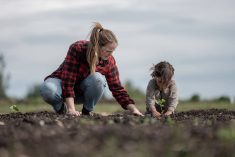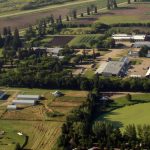There s a reason why seminars about business design are dominating business conferences across North America this year and why sales are booming for books such as Roger Martin s The DESIGN OF BUSINESS: WHY DESIGN THINKING IS THE NEXT COMPETITIVE ADVANTAGE.
More accurately, there are two reasons. The first is less important. It s that new psychology breakthroughs together with learnings from detailed business analyses add up to a powerful case that if you don t think about how your business is designed, you ll tunnel vision, always thinking about the next widget coming down the line.
Read Also

‘No agenda, no attenda’: How to professionalize your family farm meetings
Establishing meeting ground rules can help a farm family find ways to communicate that work for the business and the family.
The other reason is the global recession. More companies in more industries have been pushed beyond the point where production efficiencies can save their hides.
They ve been forced to get creative, developing new value chains, new joint ventures, new ownership and management approaches and new ways of structuring what they do.
None of this is particular news in agriculture. Farmers have been business innovators practically as long as there have been commercial farms.
But the discovery in other sectors is just as relevant on the farm. Structural change isn t just saving their businesses, it s helping them leapfrog forward, so they re emerging from the recession leaner, meaner and more ready to profit than ever before.
Design change can be like introducing a brand new technology. Dreams that were impossible before can become real today.
Take some time to read the stories in this issue and in following issues of Country Guide. You won t always find a fit on your own farm for everything you read. You might think that syndication, which Morris Thalen swears by, could be of no use to you, although we think everyone can gain a lot from studying his example, especially as it relates to providing training opportunities for his children.
Other stories may make you angry. Many conventional farmers will question the claims of Saskatoon s organic Farmer Direct co-op. We share those concerns, but surely the organic sector has some business lessons to teach the rest of us.
We ll also be running profiles of ag businesses that are implementing design changes. Not only is it good to know what the companies you re doing business with are thinking, it s also good for all of us to ask ourselves if their strategies might work on the farm too.
Agriculture will never be just one thing. Different commodities have different design needs. Different regions have different opportunities. Different families have different strengths and challenges. Within all those differences, however, are individual farmers who are grappling with remarkably similar strategic issues about capitalization, market development, career planning and lifestyle.
We hope you enjoy these stories, and we hope to hear your feedback on them. Call me any time at 519-674-1449, or email be at [email protected].















